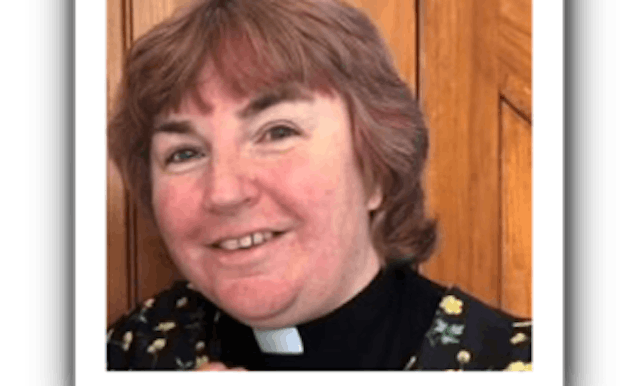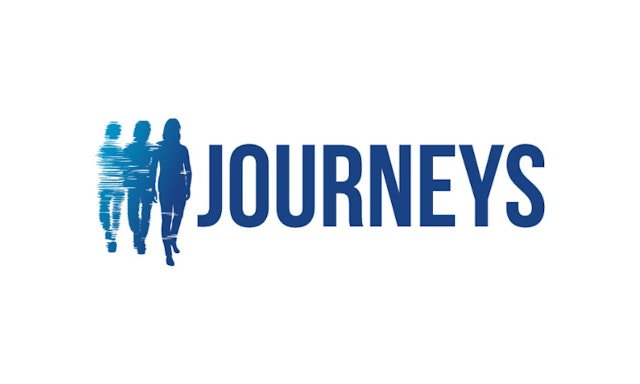We spotted this tweet from Rev'd Tracey Voysey, an Assistant Curate in the Axe Valley Mission Community and wanted to find out more:
This year, the Mothers’ Union in Devon ran our Lent course, Journeys.


We spoke to Tracey and Heather Sayle, the Diocesan President of the Mothers’ Union in Exeter to hear about their experience:
How did you hear about Journeys?
We follow the work of The Clewer Initiative closely and in February attended a modern slavery awareness event in Plymouth to mark St. Bakhita's Day. It was organised by Caritas Diocese of Plymouth, Transforming Plymouth Together, the Diocese of Exeter and The Clewer Initiative. During one of the presentations, we heard about Journeys and thought it was definitely the sort of course we could run in our Diocese to increase awareness of modern slavery.
How did you promote Journeys?
We used our usual communication channels – Facebook and our regular newsletter – to inform people about the course. We spoke to all our Mothers’ Union leaders and members and encouraged people to invite their friends. Between 18-22 people attended each week.
How did the course work?
It was particularly effective running the course over Zoom because Devon is a large, sprawling county and it can be hard to convene people centrally. Zoom enabled people to log on wherever they were. We turned the written material into PowerPoint slides and embedded the films so it was easy to use over Zoom.
We invited Rev’d Edwina Fennemore, the Diocese of Exeter’s modern slavery and anti-exploitation advisor, to join us. This made a real difference – we felt reassured that we didn’t have to be the experts and that Edwina could answer questions and provide local context and insight.
We discussed in advance how people might react to the material. We thought it would be best to start the meeting earlier than usual so people had time afterwards to process what they had watched. We started the course at 7pm and ended by 8.15pm. As leaders we stayed on the zoom for as long as people wanted to chat.
We would recommend watching the films in advance so you know what is coming up – it is a sensitive subject and important to think about how you support people and ensure they are comfortable. For us on zoom, we made sure the screen wasn’t always showing people’s faces so they had some privacy. We had thought about using breakout groups to encourage conversation but in the end, this wasn’t necessary as the discussion flowed easily.

What struck you about the experience?
The material was pitched well and the films were really powerful, particularly the dramatised case studies. The interviews with church leaders and frontline workers provided both a Christian perspective and added credibility to the course. We all appreciated the drawings – they prompted lots of great discussion and helped us see links between Jesus’ story and the story of many modern slavery victims; as well as the complexity of leaving a life of exploitation and the many touch points when victims may encounter members of the community but then be overlooked. We have had county lines gangs operating in our town so that film also seemed very relevant and pertinent.
We appreciated the way the Bible studies followed the lectionary. It meant that the readings were familiar as we had heard them read in church the day before. Journeys built on the Gospel reading and made it seem even more relevant. It was quite revelatory – there were definitely several “lightbulb” moments.


What change has the course brought?
We set out to raise awareness and equip members of the Mothers’ Union in Devon to take action. As a result of the course, we know of some people who have put up posters about modern slavery in the Warm Spaces they run. This may not seem like much but it is a big step when there has been no awareness previously.
A number of the participants on the course volunteer with local organisations such as the Food Bank. They are all determined to share their new-found knowledge in these contexts. In this way, we are hoping there will be a domino effect!
Many people spoke about how challenged they had been about their attitude and approach to welcoming ‘strangers’ in their communities. They also spoke about the responsibility to be the eyes and ears of their community and be more vigilant.
We have definitely sown lots of seeds. People feel empowered and are thinking about what they can do.
We plan to host a follow up event where we will share what we have learnt and hear a modern slavery presentation from a local member of the police. We are moving forward in a really productive way – sharing the knowledge we have gained and encouraging others to take action. We have also begun to think about how we can share the material with other clergy nearby.
We would definitely encourage other Dioceses to consider using Journeys next year during Lent. It has been such a positive experience for our group and it has made a tangible impact.


